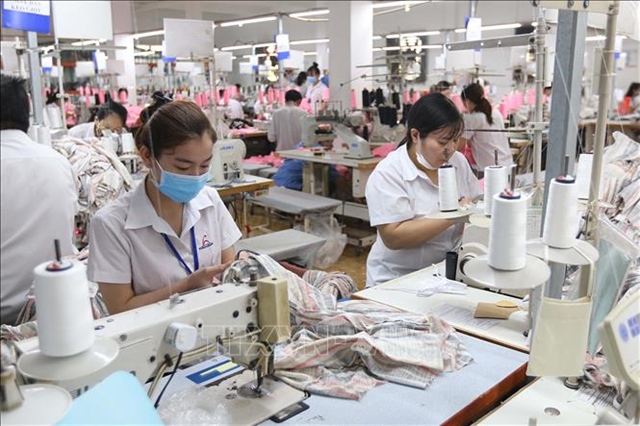 Economy
Economy

Some 70,000-80,000 workers across the country have returned to work since the mass disruption caused by the novel coronavirus in Việt Nam, said deputy minister of labour, war invalids and social affairs (MOLISA) Lê Văn Thanh at an online conference held on Wednesday to discuss and share experience in job creation and sustainable business in the new normal [after COVID-19].

HÀ NỘI — Some 70,000-80,000 workers across the country have returned to work since the mass disruption caused by the novel coronavirus in Việt Nam, said Deputy Minister of Labour, Invalids and Social Affairs (MOLISA) Lê Văn Thanh at an online conference held on Wednesday to discuss and share experience in job creation and sustainable business in the new normal [after COVID-19].
During the first four months of 2020, it was estimated over 5 million workers in Việt Nam either lost their jobs, had their work hours reduced or suffered income loss, said Thanh. A MOLISA survey said 67 per cent of all businesses had to lay-off part of their workforce while up to 80 per cent of businesses in the informal sector had to suspend their operations for up to a month in compliance with social isolation regulations.
The survey also showed one of the lowest labour participation rates ever recorded during the first quarter of 2020 with just over 75 per cent.
The deputy minister said in the coming months more workers will likely return to work but there are steps that must be taken to ensure a smooth and more efficient process.
On MOLISA’s part, the ministry has been working to upgrade its existing job-seeker website to a national job portal to connect workers and potential employers and vocational schools.
The Government has also reserved a budget up to VNĐ5 trillion (US$216 million) to retrain and reskill workers to help adapt the Vietnamese labour force to new changes in the job market.
Sam Haggag, Country Manager of ManpowerGroup Malaysia – one of the world’s largest staffing firms – said governments, businesses and union organisations play important roles and must work together to prepare the workforce for the new normal.
Haggag said an organised return of the workforce is key to economic recovery, citing significant resources and efforts invested by industries including airlines, logistics and transport in Singapore, Malaysia and Thailand.
Simon Matthews, Country Manager of ManpowerGroup Vietnam, Thailand & Middle East, said by 2020, 84 per cent of businesses will require workers to upgrade their skillsets, according to industry forecasts. This, in turn, will require fresh approaches to human resource development and hiring policies.
Nguyễn Thị Quyên, deputy head of MOLISA’s Department of Employment, said the country must prepare for different scenarios with the job market.
While the country will likely see more workers returning to work in the near future, the COVID-19 pandemic is unprecedented and hard to predict. In a worst-case scenario, up to 100,000 workers could lose their jobs within a month with up to 80 per cent of businesses forced to lay-off 7.2 million staff. — VNS




